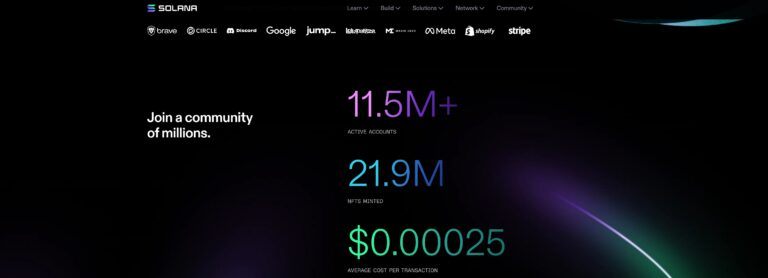Solana Labs Co-Founder Raj Gokal recently sat down with Cointelegraph to discuss a range of topics, including Web3, scalability, and tokenization. Gokal, who has a venture capital and health tech background, transitioned to the crypto industry after meeting Solana co-founder Anatoly Yakovenko. He found the journey rewarding and has been involved in crypto for the past five years.
Real-World Use Cases for Web3
Gokal emphasized the importance of decentralized physical infrastructure networks (DEPIN) as a real-world application of Web3. He cited examples like Helium, which established a decentralized 5G network, and Hivemapper, which utilized a distributed global workforce to remap 8% of the world’s roadways. These projects demonstrate the potential of blockchain technology to create innovative, low-cost, and scalable solutions.
Scalability in Web3
When asked about scalability challenges, Gokal highlighted the benefits of parallelized transaction processing and validation. Solana has optimized for speed with 400-millisecond block times and near-instant confirmations. He also stressed the importance of low transaction costs, compatibility, and decentralization for the longevity and reliability of blockchain networks.
Mobile and Payments
Solana has ventured into the mobile and payments sector with the introduction of Solana Pay and the Saga phone. Gokal believes that these initiatives will influence giants like Apple and Google to adopt more user-centric frameworks. Solana Pay aims to enable QR code-based payment features across various platforms, while the Saga phone provides a sandbox for developers to build without restrictions.
Real-World Asset Tokenization
Gokal acknowledged the untapped potential in the tokenization of real-world assets, particularly in real estate. He mentioned initiatives like Parcl and Homebase, which are pioneering this space. However, he noted that achieving widespread adoption requires creating valuable platforms and effectively communicating their benefits to users.
Mitigating Risks in Web3
To address potential outages or technical difficulties, Gokal emphasized the need for reliable infrastructure. Networks like Solana have made strides in enhancing liveness and minimizing potential issues, which will be crucial for institutional adoption.
Product-Market Fit in Web3
Gokal identified two stages of product-market fit for layer-1 protocols and the broader Web3 ecosystem. The first stage involves founders and developers securing funding to launch products. The second stage focuses on end-users deriving value from contributing to networks rather than merely holding assets.








